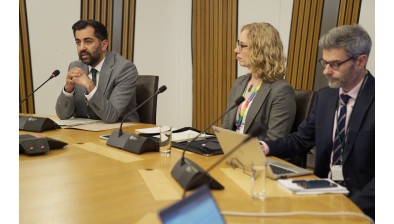FSB: Growth expectations of Scottish small businesses fall to lowest level since pandemic outbreak

Guy Hinks – Chair of FSB Scotland
The number of small businesses expecting to shrink, close or sell up outstrips the number expecting to grow in Scotland for the first time since the outbreak of the Covid pandemic, new figures from the Federation of Small Businesses (FSB) have revealed.
More than a quarter of small businesses (28.7%) expect to contract, close or sell up over the next 12 months, compared to just under a quarter who expect to grow (24.5%), FSB’s Small Business Index (SBI) for Q2, 2025, found. The latest results represent both the highest number expecting to contract, close or sell, and the lowest number expecting to grow, since the outbreak of the Covid pandemic in Q1, 2020.
Overall small business confidence in Scotland has also fallen to a net rating of -35.7, a significant decline on the previous quarter (-15.3), the SBI found.
The negative findings reflect UK-wide concerns about the impact of higher employer National Insurance contributions and increases in the National Living Wage on the cost of employing staff, as well as the extra costs and risks which the impending Employment Rights Bill will place on smaller employers. The UK SBI figure is lower than in Scotland in Q2, at -44.1.
Guy Hinks, FSB Scotland Chair, said: “For the first time since the country went into lockdown, more small businesses in Scotland expect to shrink, close or sell up than expand. That is deeply concerning, not just for thousands of small businesses, their staff and customers, but for the prospects of the whole Scottish economy which is largely driven by SMEs.
“The governments in Westminster and Holyrood have been making all the right noises about supporting the small business community. These stark findings show the urgent need for decisive action.
“At Westminster, that means taking steps to tackle the blight of late payments, the inappropriate use of personal guarantees on business loans and listening to business concerns about the Employment Rights Bill and its dampening effect on firms taking on staff.
“At Holyrood and in local authorities across Scotland, that means ensuring the needs of small businesses are fully taken into account whenever any policy is brought forward, from creating a level playing field for small firms bidding for valuable public contracts to local Visitor Levy schemes.”
Almost half of small businesses in Scotland (48%) reported a fall in profits over the last three months, compared to just over a quarter who saw an increase (27%), while twice as many cut staff (18%) as increased employee numbers (9%).
Nine out of 10 Scottish respondents (88%) experienced rising costs in Q2, largely due to increases in utility bills, as well as labour and tax costs. More than half (54%) cited the performance of the domestic economy as the biggest barrier to the growth of their own business, followed by labour costs (41%) and the tax burden (40%).
Looking ahead, nearly one in three (30%) businesses expect to see an increase in profits over the next three months, although this is significantly down on the previous quarter (41%).







